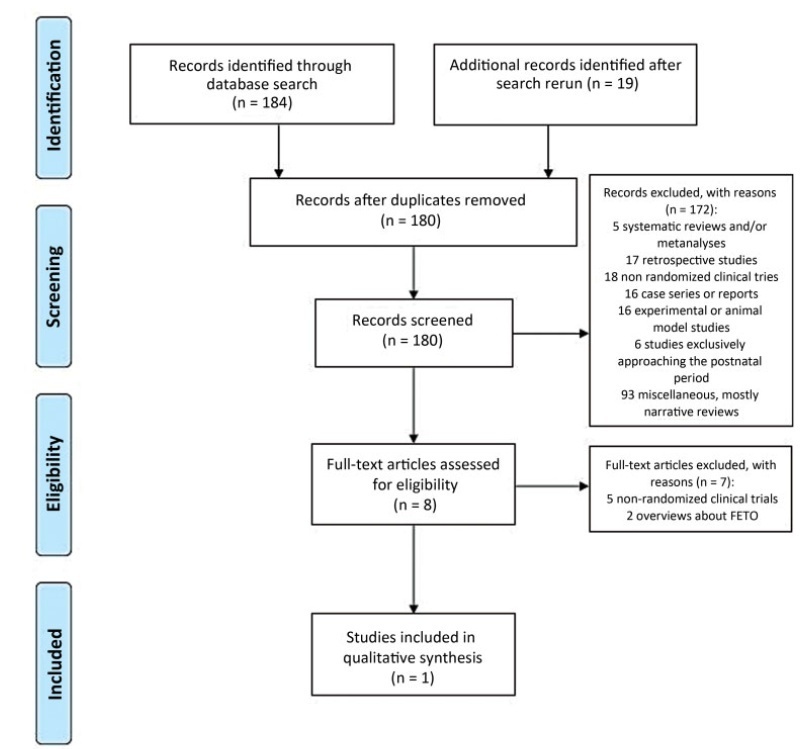-
Review Article02-28-2022
Perinatal Outcomes after Fetal Endoscopic Tracheal Occlusion for Isolated Congenital Diaphragmatic Hernia: Rapid Review
Revista Brasileira de Ginecologia e Obstetrícia. 2022;44(1):74-82
Abstract
Review ArticlePerinatal Outcomes after Fetal Endoscopic Tracheal Occlusion for Isolated Congenital Diaphragmatic Hernia: Rapid Review
Revista Brasileira de Ginecologia e Obstetrícia. 2022;44(1):74-82
Views205Abstract
Objective
To compare the perinatal outcomes of fetuses with isolated congenital diaphragmatic hernia after fetal endoscopic tracheal occlusion (FETO) and antenatal expectant management.
Data sources
In this rapid review, searches were conducted in the MEDLINE, PMC, EMBASE and CENTRAL databases between August 10th and September 4th, 2020. Randomized controlled trials (RCTs), quasi-RCTs or cluster-RCTs published in English in the past ten years were included.
Study selection
We retrieved 203 publications; 180 studies were screened by abstract. Full-text selection was performed for eight studies, and 1 single center RCTmet the inclusion criteria (41 randomized women; 20 in the FETO group, and 21 in the control group).
Data collection
Data collection was performed independently, by both authors, in two steps (title and abstract and full-text reading).
Data synthesis
There were no cases of maternal mortality. The mean gestational age at delivery was of 35.6±2.4 weeks in the intervention group, and of 37.4±1.9 weeks among the controls (p<0.01). Survival until 6 months of age was reported in 50% of the intervention group, and in 5.8% of the controls (p<0.01; relative risk: 10.5; 95% confidence interval [95%CI]: 1.5-74.7). Severe postnatal pulmonary hypertension was found in 50% of the infants in the intervention group, and in 85.7% of controls (p=0.02; relative risk: 0.6; 95%CI: 0.4-0.9). An analysis of the study indicated some concerns of risk of bias. The quality of evidence was considered moderate to low.
Conclusion
Current evidence is limited but suggests that FETO may be an effective intervention to improve perinatal outcomes.
Key-words congenital diaphragmatic herniasPrenatal ultrasonographyPrognosissystematic reviewultrasound diagnosisSee more


